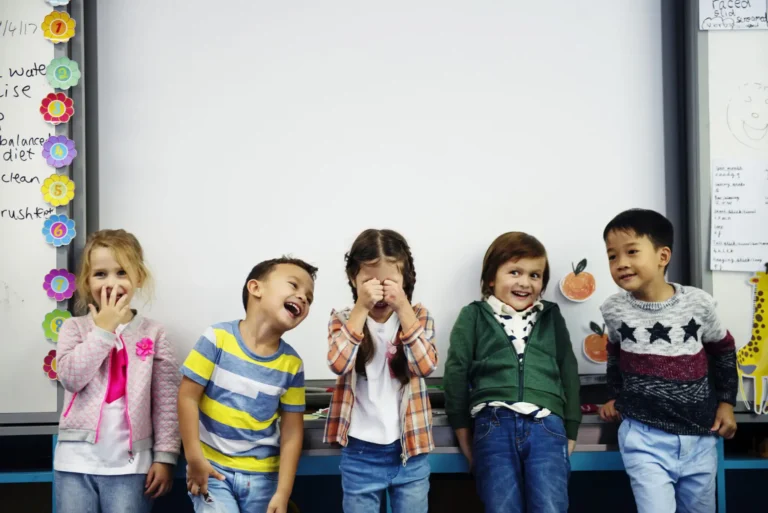It is no secret that the effects of bullying can have serious psychological impacts on young individuals. In elementary school in particular, when children are still forming their identities and impressions of the world around them, bullying can create even more profound issues within a child’s psyche. If action is not taken to stop this behavior early on, it may lead to long-term and potentially irreversible harm. This blog post will explore the psychological consequences of bullying for elementary school children and discuss how adults can work together to prevent these detrimental experiences from occurring in our classrooms.
How bullying can affect self-esteem in elementary school children
Bullying is a serious issue that can have lasting effects on a child’s self-esteem. For elementary school children, bullying can be particularly damaging as they are still developing their sense of self and learning how to navigate social relationships. Being the target of bullying can leave children feeling powerless, alone, and ashamed. These negative feelings can have a snowball effect, leading to a decline in academic performance, social withdrawal, and even depression. It’s crucial for parents, educators, and peers to recognize the signs of bullying and provide the support and resources necessary to help children build resilience and regain their confidence. By working together, we can create a safe and inclusive environment for all children to thrive and reach their full potential.

Symptoms of psychological trauma caused by bullying
Bullying can have a lasting impact on a person, including psychological trauma. Some common symptoms of this trauma include anxiety, depression, difficulty sleeping, and a persistent feeling of fear or helplessness. Individuals who have experienced bullying may also struggle with social and emotional issues, such as difficulty forming relationships or trusting others. While these symptoms can be difficult to cope with, it’s important for those who have been affected by bullying to seek professional help and support. With the right resources and treatment, it is possible to heal from the trauma caused by bullying and move forward with a fulfilling and happy life.
How to identify if your child is a victim of bullying
Bullying is a problem that affects many children across the world, and it is important to be able to identify if your child is a victim of it. If your child comes home from school upset, frequently complains of headaches or stomach aches, or suddenly becomes withdrawn or anxious, these could be signs that they are being bullied. Additionally, if you notice any unexplained bruises or injuries, or if their possessions are frequently damaged or destroyed, these could also be warning signs. It is important to talk to your child and get them the help they need if you suspect they are being bullied. Remember, no child deserves to suffer at the hands of a bully, and it is up to us as parents to recognize and address this issue.
Strategies for parents to help their children
As much as we would prefer otherwise, bullying is a fact of life for many children. Fortunately, there are ways parents can help their kids cope with the negative effects of bullying. One of the most important strategies is simply being there for your child. Create a safe and nurturing home environment where your child feels comfortable talking to you about their experiences. Encourage them to speak up if they’re being bullied or witness bullying, and take their concerns seriously. Help them practice assertiveness and boundary-setting skills, and model healthy conflict resolution strategies yourself. Ultimately, the best way to help your child is to show them that they are loved, valued, and supported no matter what challenges they face.
The importance of helping children cultivate positive relationships and experiences
Children are like sponges, absorbing everything around them. It’s important to ensure that what they absorb is positive and conducive to a happy and fulfilling life. Children who have positive relationships and experiences are more likely to grow up to be confident, empathetic adults who can navigate the world with ease. By helping children cultivate positive relationships with family, friends, and even strangers, we are laying a strong foundation for their future success. Encouraging children to explore their interests and passions also allows them to have positive experiences that shape their identity and give them a sense of purpose. Ultimately, investing in positive relationships and experiences for children is crucial for their development and well-being.

Supporting your child after they have been bullied
When your child tells you that they’ve experienced bullying, your first instinct may be to jump into “fix it” mode. But it’s important to listen first and foremost, creating an open dialogue where your child feels heard and validated. Depending on the situation, they may need different kinds of emotional support – some children may benefit from a hug, others may prefer space to process their emotions on their own. Recognizing and honoring your child’s unique needs is key to helping them navigate the difficult terrain of bullying. With the right approach, you can help your child feel supported and empowered as they work through their experience.
Last Word
In summary, it’s important for parents to be vigilant about the signs of bullying in their children. What may seem like play at first may lead to long-term psychological trauma and damage to self-esteem. As a parent, it’s important to be there for your child after they have experienced bullying by creating a safe space where they can tell their story and process their feelings. Additionally, helping children develop trust and positive relationships with adults and peers is vital so as to avoid being exposed to traumatic experiences in the future. By taking a proactive approach to teaching anti-bullying messages, validating the experiences of those who have gone through bullying, and providing ample support, parents can ensure that their children are well taken care of during these challenging times.






